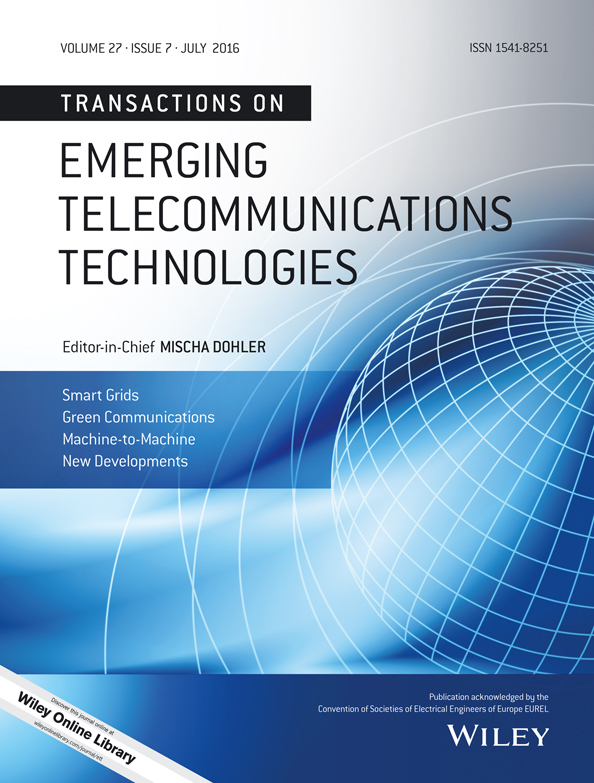Locally cooperative traffic-offloading in multi-mode small cell networks via potential games
Abstract
With the explosive growth of wireless data traffic, a new multi-mode small cell has been studied for offloading part of traffic load to unlicensed band in order to alleviate burden in licensed band. With the offloading technology, networks can achieve higher system throughput and provide better quality of experience for users. However, the lack of network planning may result in severe co-channel interference. The key question is how to allocate traffic load rationally to prevent severe interference from users in unlicensed band. In this paper, to dispose complex coupled interference relation among small cells, we introduce an interference graph to capture the interactions among small cell base stations. Then, based on the interference graph, we formulate the traffic-offloading problem of the joint user scheduling and power allocation in multi-mode small cell networks as a local cooperation game. In addition, we prove that the proposed game is an exact potential game, which has at least one pure strategy Nash equilibrium (NE), and the best NE can maximise the total network sum rate. Furthermore, we design a distributed iterative learning algorithm to explore the pure strategy NE point of the game, where it does not need to know the complete information of the total network. Both theoretical analysis and simulation results verify the convergence of the proposed algorithm and near-optimal system throughput with good fairness. Copyright © 2016 John Wiley & Sons, Ltd.




